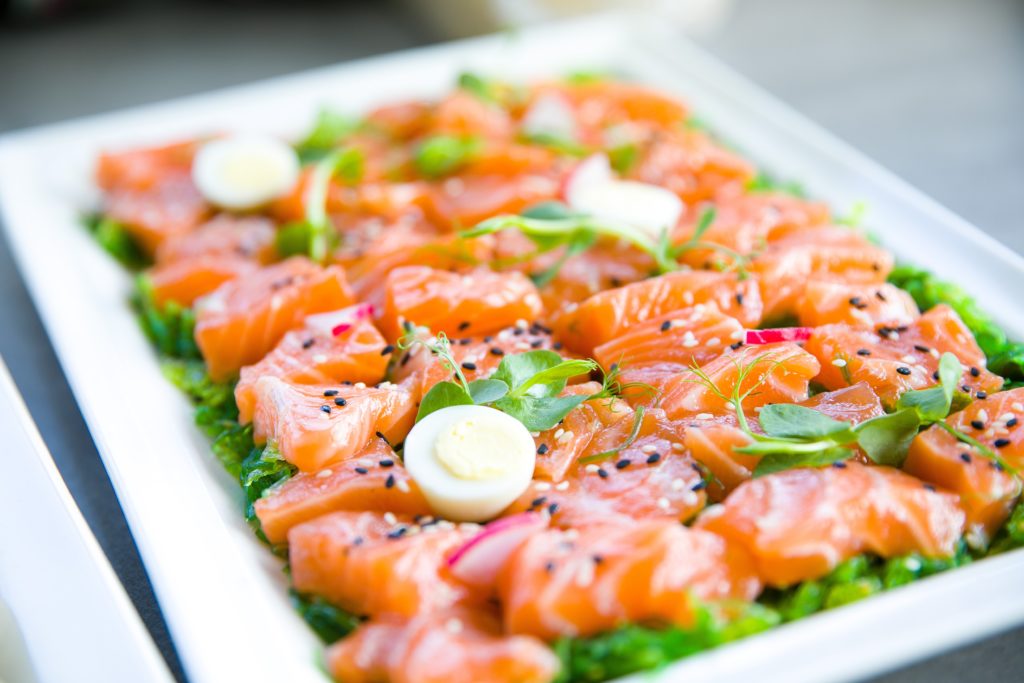Is Vitamin D Important For Endurance Athletes?

Ready for the inside scoop on vitamin D? Is vitamin D important for endurance athletes? You’ve probably heard that it is beneficial for endurance athletes in one form or another. Unlike many other nutrition myths out there, what you’ve heard about vitamin D is more likely to be true than not.
Is Vitamin D Important For Endurance Athletes?
Vitamin D affects a wide variety of functions in the body such as:
- Bone Health: We all know that calcium helps build strong bones, right? Well, what we don’t often talk about is the role vitamin D plays in that calcium absorption. Nearly all dairy products are fortified with vitamins A & D. The reason for vitamin D? To help the calcium be better absorbed in our bodies, hence stronger bones. The importance of having strong bones as an endurance athlete is paramount to handling more intense workloads as you strive to improve your fitness throughout your athletic career.
- Immune Health: Vitamin D acts on immune cells (B & T) to bolster our immunity. A growing body of research shows that persons with low vitamin D levels are more susceptible to illness, particularly illnesses that are autoimmune in nature. Staying free from illness is key to a consistent training cycle, and consistent training cycles lead to stronger performances on race day.
- Sleep Regulation: Vitamin D has both direct and indirect effects on sleep & sleep quality. Most prominent is the way vitamin D affects melatonin production. Melatonin is a hormone that helps regulate our body’s sleep and wake cycles. When our sleep and wake cycles are regulated, we experience better quality sleep than we otherwise would be able to.
- Hormone Regulation: Low levels of vitamin D are related to lower levels of testosterone in men. Testosterone (in both men and women) plays a role in energy levels & muscle strength & is vital for optimal athletic performance.
- Weight Maintenance: Persons with optimal levels of vitamin D are more likely to maintain their weight. While there isn’t one “right” weight or BMI for everyone, the ability to maintain a weight that is healthy for you personally is helpful when trying to compete at your best.
- Improve Muscle Mass & Strength: Some studies have found that vitamin D improves protein synthesis and prevent excessive breakdown of muscle fibers. All of this helps our muscles stay strong and build strength after strenuous efforts.
Sources Of Vitamin D
Did you know that vitamin D’s nickname is “the sunshine vitamin?” When our skin is exposed to UV light from the sun, that light triggers our bodies to create vitamin D for our bodies to use. We typically need about 15 minutes/day of sunlight exposure (on mostly bare skin) to meet our daily vitamin D needs. While this may seem easy to achieve as an athlete that trains outdoors, it can prove to be difficult if you live in cloudy areas with heavy rain or snow, or any climate that causes you to bundle up or lather on sunscreen (UV light will not be absorbed through clothing or sunblock lotion).
During at least a period of time each year, most everyone will experience a climate that makes it difficult to absorb enough UV light to meet our vitamin D requirements. For this reason, it’s important to know what foods & supplements are the best sources of this micronutrient.
Best Food Sources:
- Fatty fish (salmon, mackerel, tuna, halibut, etc.)
- Egg yolks
- Mushrooms
- Vitamin D fortified dairy products (yogurt, cheese, milk)
- Vitamin D fortified plant milk products (almond, cashew, coconut, etc.)
Things to look for in a supplement (if you find you are still low after trying to incorporate more vitamin D foods & sunshine in your life):
- Optimal dose: 1,000-5,000 IU/day
- Optimal form: D3
- Going over 5,000 IU/day can lead to vitamin D toxicity which has similar effects to vitamin D deficiency. Yikes!
In conclusion, vitamin D is an important micronutrient for endurance athletes to test regularly in order to maintain optimal levels. Athletes should focus on obtaining enough vitamin D from foods & sunshine, but may need to supplement as well. Certain climates & times of the year make vitamin D more important to focus on, particularly the wintertime, so now is a perfect time to cook up some salmon!
References
- Vitamin D: Fact Sheet for Health Professionals, National Institutes of Health, https://ods.od.nih.gov/factsheets/VitaminD-HealthProfessional/, updated August 17, 2021, accessed November 30, 2021.
- Blander G, Ward C, In Defense of Vitamin D: The Facts You Need to Know, Inside Tracker, https://blog.insidetracker.com/in-defense-of-vitamin-d, published April 28, 2021, accessed November 30, 2021.
- Braun P, Are You Deficient in Vitamin D?, Inside Tracker, https://blog.insidetracker.com/are-you-deficient-in-vitamin-d, published March 24, 2020, accessed November 30, 2021.
- Aranow C. Vitamin D and the immune system. J Investig Med. 2011;59(6):881-886. doi:10.2310/JIM.0b013e31821b8755
- Fiammetta R ,Giovanna M ,Elea DI, et al. “Vitamin D and Sleep Regulation: Is there a Role for Vitamin D?”, Current Pharmaceutical Design 2020; 26(21) . https://doi.org/10.2174/1381612826666200310145935

Jackie Hendrickson RD, MPH is a registered dietitian with a Masters Degree in public health nutrition from Utah State University. Jackie is the owner of Enduura Nutrition and loves coaching her athletes to their athletic potential through sustainable training & nutrition principles. She is an avid road & trail marathoner with a background in collegiate track, cross country, and competitive swimming. Jackie and her husband, Adam, were teammates in college and continue to pursue their running goals together. They live in beautiful Ogden, Utah with their 2 year old son, Lincoln.









